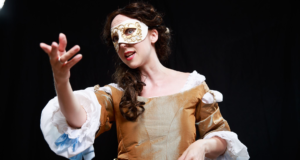 |
| Terence Rattigan |
It would be easy to miss, were you not looking out for it, but 2011 marks a celebration in the arts, that of the 100th birthday of playwright and screenplay writer Terence Rattigan. In the West End, two theatres are currently staging his plays: The Old Vic, with its production of the courtroom drama Cause Célèbre, directed by Thea Sharrock, and the Theatre Royal Haymarket, with its revival of Flare Path, starring Sienna Miller and directed by Sir Trevor Nunn. There are also a host of other events, including a season of films of Rattigan’s works at the British Film Institute. And let’s not forget that the National’s 2010 production of Rattigan’s After the Dance, starring Benedict Cumberbatch and also directed by Sharrock, took 4 Olivier Awards at this year’s prize-giving in March. For London to be awash with tributes to this author reflects his deep cultural influence, and now is a better time than any to explore what makes Terence Rattigan such an important figure in British culture.
Rattigan was born in 1911 in Kensington. The son of a diplomat, he was educated at Harrow College and went to Oxford University. His success as a playwright came relatively early: his first production to be staged in the West End was French Without Tears, which he wrote aged just 25. His next play, After the Dance, had its run cut short by the advent of World War II, during which he enlisted and served as an Air Gunner with the RAF (his experiences with which formed the basis of Flare Path). When the war ended, he quickly became one of the most eminent stage writers in Britain, with his works dominating the West End. Eventually though, the understated style which governed his plays – with characters only indirectly showing their emotions – caused his downfall. This was almost exclusively due to the raging success of Look Back in Anger by John Osborne, which promoted a much more emotional kind of theatre, that of the ‘Angry Young Men’. Rattigan’s style fell behind, with many of Britain’s finest actors, such as Laurence Olivier, choosing to take on these new, emotionally charged roles, a fact which he very much resented. He moved away from the UK in the 1960’s to Barbados, having been diagnosed with leukemia. When he was knighted in 1971 for services to theatre, his productions experienced a small revival in popularity before his death in 1977. He died before the end of the West End run of his final play, Cause Célèbre.
Ironically, the understated style which led to Rattigan being labeled old fashioned in the late 1950’s is now considered to be his finest quality, and critics today rate him as one of the greatest writers of the century in British theatre. He created ‘masterpieces of understatement’, to paraphrase Winston Churchill (who was reacting to his viewing of Flare Path). It is often said that many of his works were partly autobiographical, containing references to his early life. For instance, The Browning Version was inspired by his time at Harrow College. This is also shown by the way he depicted relationships between his characters: Rattigan came to adulthood as a gay man in the 1930’s, when homosexuality was still seen as a crime and persecuted. Rather than write about openly gay relationships, he would create male characters with strong emotional bonds, whilst conversely depicting heterosexual marriages in a cynical, pejorative manner. The emotional repression caused by social conventions is a leitmotiv in his works, and perhaps reflected his own emotional state: Geoffrey Wansell, his biographer, wrote of him “behind the apparently carefree mask lived a man crying out to be loved and appreciated, but a man who was also incapable of demonstrating that need”.
His 100th birthday is recognized as being of cultural importance to British theatre, and the productions of his plays are attracting correspondingly excellent critical acclaim. Indeed, posterity has cast Rattigan as one of the greatest stage writers in post war Britain, and one of the most prolific. He was the first author in the history of UK theatre to write two plays which would go on to have runs of over 1000 performances in their first West End productions, and many of his works were converted into films, often with screenplays which he personally authored. Truly, we should be glad that his centenary is being marked by the theatrical circles nation-wide, not least because it has led to some truly excellent productions hitting the London stage.

 Everything Theatre Reviews, interviews and news for theatre lovers, London and beyond
Everything Theatre Reviews, interviews and news for theatre lovers, London and beyond


